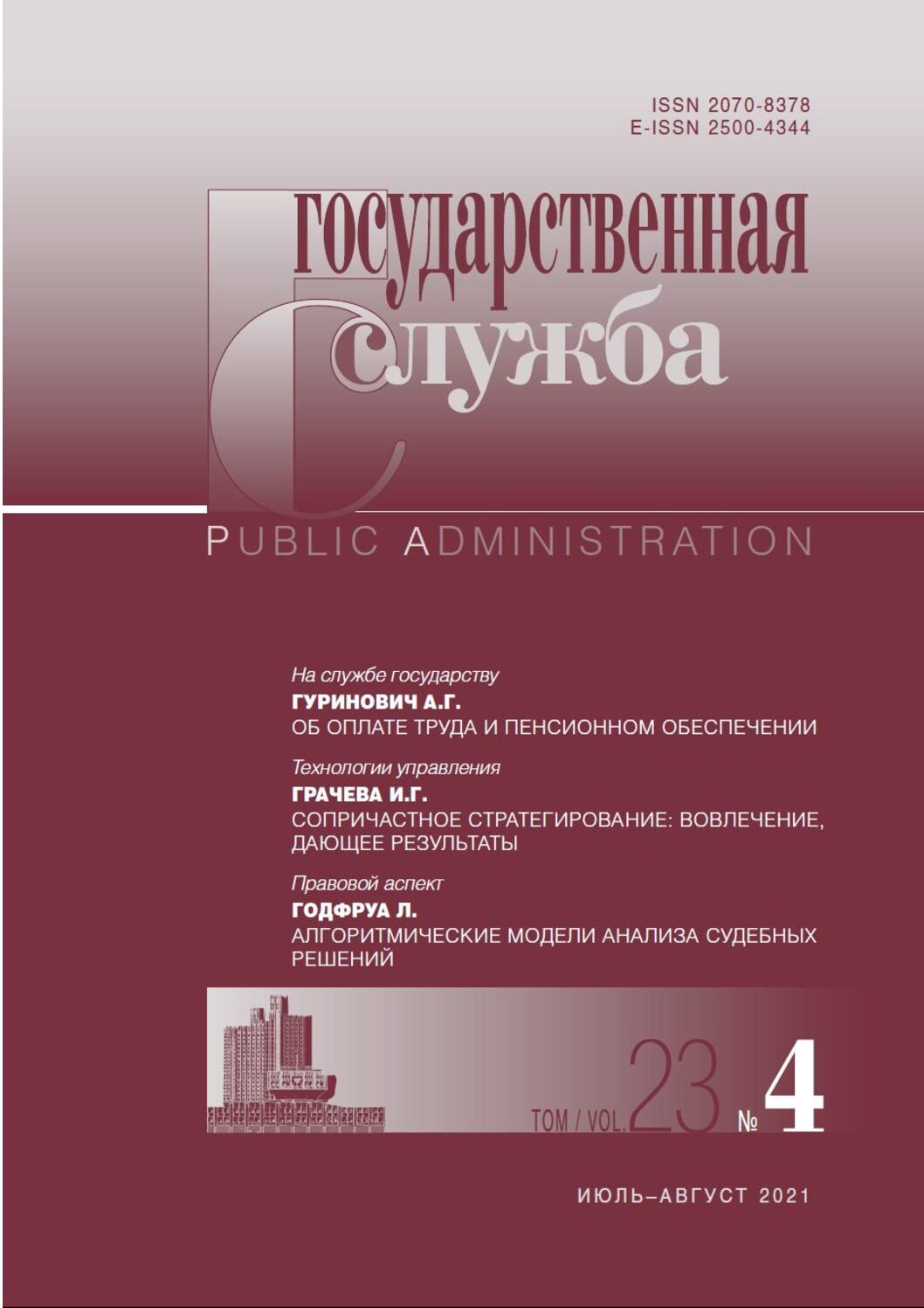Recommended link to article:
LÊMY GODEFROYа
аUniversity of Cote d’Azur
DOI: 10.22394/2070-8378-2021-23-4-20-28
Abstract:
The article examines the introduction of digitalization into justice processes and the processing of judicial decisions in administrative and civil personal injury compensation disputes. The purpose of the implementation of the algorithms was an attempt to develop indicative criteria and ways to determine the amount of compensation for bodily injury. It is noted that the new rules were met ambiguously by the professional community. For example, delegations of lawyers from G7 countries expressed concerns about the future of justice. The reason for their discontent was the possibility of excluding adversarial discussion from judicial proceedings if artificial intelligence was used. In this context, the regulation of algorithms used in the justice sector, designated by the term “algorithmic models of judicial decision analysis” (MAAD) seems to be a priority for the preservation of democracy and the rule of law. The author believes that MAAD will promote greater openness of the judge, both to the plaintiffs and to the judicial institution, as well as – “coherence” of the case law, making it available for judges to examine. It is emphasized that the introduction of such algorithms is a form of digital judicial collegiality, not the standardization of judicial thinking.
Keywords:
legtech, law and artificial intelligence, algorithmic models for analyzing judicial decisions (MAAD)
Received:
December 28, 2020
References:
Bardout J.-C. Compensatory benefit/retirement/pilotPC. AJ Famille. 2015. In French
Bardout J.-C., Loryhios I. New method for calculating the compensatory allowance! AJ famille. 2013. In French
Besse P., Castets-Renard C., Garivier A. Loyalty of algorithmic decisions: contribution to the public debate initiated by the CNIL. Éthique et numérique. 2017. https://hal.archives-ouvertes.fr/ hal-01544701 In French
Buat-Menard E., Giambiasi P. The digital memory of judicial decisions. Dalloz, 2017. In French
Claude A.L. Commentary on the Spirit of Laws by Montesquieu: with unpublished observations by Condorcet on the 29th book of the referred work. First published in 1819, reissued by Hachette Livre BNF, 2017. In French
Ganascia J-G. The myth of the singularity. What’s to fear about artificial intelligence? Le Seuil, 2017. In French
Garapon A., Perdriolle S., Bernabe B., Kadri C. Prudence and authority: the office of the judge in the XXI century. Paris, 2013. In French
Heffner J. Predictive policing: American experiences with the Hunchlab platform. Security and justice conference. The challenge of algorithms. INHESJ, 2017. In French
Jouen F., Puigelier C., Tijus C. Decision and decision making. Mare et Martin, 2017. In French
Lebreton-Derrien S. Predictive justice. Introduction to a “simple” virtual justice. In: Predictive justice. Archives of Philosophy of Law, Vol. 60. Dalloz, 2018. In French
Methods for calculating the compensatory allowance. AJ famille. 2015. In French
Pitcho B., Bustamante N., quoted by Pourtau S. Predictive justice: progress or threat? January 30, 2017. https://www.actualitesdudroit.fr/browse/vie-des-professions-juridiques-et-judiciaires/ legaltech/5198/la-justice-predictive-progres-ou-menace In French
Piwnica D. Evaluation of the compensatory allowance: a divinatory exercise? AJ famille. 2013. In French
Poinas E. The court of algorithms. Judging in the era of new technologies. Berger-Levrault, 2019. In French
Reigeluth T. Algorithms have reasons behavior ignores. Multitudes. 2016. No. 62. Р. 112–123. In French Roberge J.-F. Mediation and the psychology of cooperation. Revue Psycho-Droit. 2016. No. 1. Р. 131–144. In French
Saint Sernin B. Genesis and unity of action. Librairie philosophie J. Vrin, Paris, 1989. In French Simondon G. On the mode of existence of technical objects. Éditions Aubier, 1989. In French
Stoessle J-L. The appeal process. A few practical aspects. In: Towards a civil procedure 2.0. Ed. by C. Blety and L. Raschel. Dalloz, 2018. In French
Villani C. For a meaningful artificial intelligence. National and European strategy. La Documentation française. March 2018. In French
Articles in Open Access mode are published under the Creative Commons Attribution 4.0 International (CC BY) license.

